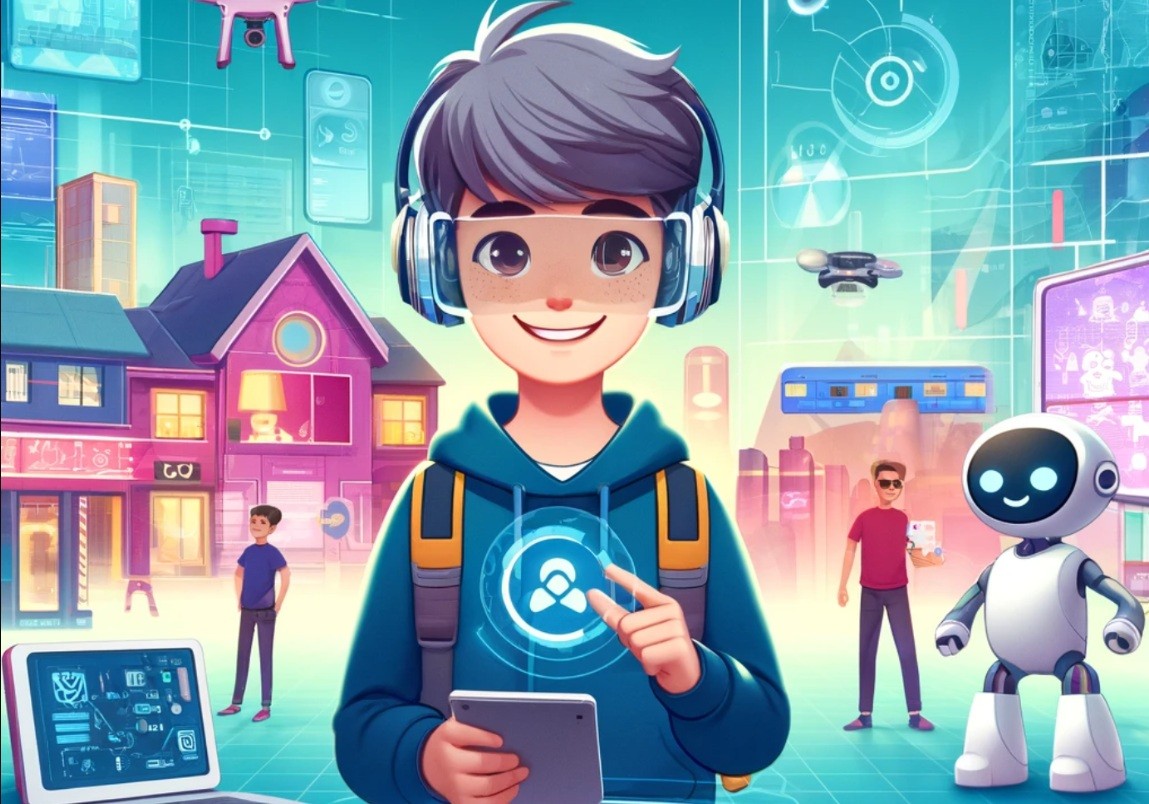What is Gen Beta 2025: How Gen Beta will Reshape the World
 |
| The first baby born in 2025, a girl, in the Czech Republic. The name for the new generation, Gen Beta, was recently announced by demographer Mark McCrindle. |
In the fast-paced evolution of human generations, each new cohort brings a unique set of characteristics, challenges, and potential to the table. Following Generation Alpha, we now prepare to welcome Generation Beta, commonly referred to as Gen Beta. This generation, born approximately between 2025 and 2040, is expected to grow up in an era of unprecedented technological advancement, environmental challenges, and societal shifts. Let’s delve into everything you need to know about Gen Beta: their traits, the world they’ll inhabit, and the impact they’re likely to have on our future.
Who Are Gen Beta?
They will be the children of Millennials and Gen Z parents, generations that are already known for their progressive values and deep integration of technology into daily life. With such tech-savvy and forward-thinking parents, Gen Beta is poised to take technological reliance to new heights. This generation will grow up with artificial intelligence as a constant companion, experiencing the benefits and challenges of a world where automation, virtual reality, and quantum computing are fully integrated into society.
| List of Generations To see Generation Beta's place amongst other sociological groups, here's a breakdown of historical generational cohorts: The Silent Generation (1928–1945): They are primarily known for their resilience during the Great Depression and World War II, both periods of great social, political, and economic struggle globally. The Baby Boomers (1946–1964): Born after World War II ended, the Baby Boomers were heavily influenced by extensive social change during their youth, and an economic boom. Generation X (1965–1980): Individuals born in Generation X are known for growing up in the era of the beginnings of technology and were raised by the baby boomers. Millennials (1981–1996): Millennials, raised during the period in which the internet became a large part of everyday life, are known for their ever-present social consciousness in terms of activism and tech-savvy abilities. Generation Z (1997–2009): The young generation today, Gen Z, like millennials were raised in the era of booming technology and are known for their sociopolitical activism and ability to utilize technology to connect online and formulate careers in the digital sphere. Generation Alpha (2010–2024): The first generation to grow up entirely in the 21st century, Generation Alpha has been shaped by the vast technological shifts that have taken place, as well as the sociopolitical and economic crises globally. Generation Beta (2025 onwards): The new and youngest generation is expected to be raised with AI and automated technology as a part of everyday life and is predicted to redefine global priorities. |
In terms of cultural context, Gen Beta’s upbringing will be shaped by global interconnectivity. Unlike previous generations, their exposure to different cultures, languages, and ideologies will start at a very young age, thanks to advancements in AI-driven translation tools and virtual communication platforms. This global perspective will likely foster adaptability and openness, key traits for navigating an increasingly complex world.
As they grow up, Gen Beta will face unique challenges. Climate change, AI disruptions in the workforce, and evolving social norms will require them to develop resilience and creativity. However, their upbringing in an era of rapid change may also equip them with an unparalleled ability to adapt and innovate.
Major Challenges for Gen Beta
The world Gen Beta will inherit is rife with challenges that could define their generation’s legacy. Chief among these is climate change. As the effects of global warming become increasingly evident, Gen Beta will grow up witnessing extreme weather events, rising sea levels, and environmental degradation. This exposure is likely to make them staunch advocates for sustainability and eco-friendly innovation, but it also means they will bear the burden of addressing issues previous generations failed to resolve.
Another significant challenge will be the rise of artificial intelligence and automation. By the time Gen Beta enters the workforce, many traditional jobs may be obsolete, replaced by AI-driven systems. This will demand a workforce that is constantly upskilling and adapting to new technologies. While AI can streamline processes and improve efficiency, it also poses risks to job security and income equality, creating a divide between those who can adapt and those who cannot.
Mental health is another area of concern. Hyperconnectivity, while offering endless opportunities, comes with its own set of problems. Constant exposure to social media and digital environments could lead to increased feelings of isolation, anxiety, and depression. Additionally, as virtual reality becomes more immersive, there’s the potential for individuals to struggle with balancing digital and physical realities.
 |
| The name of the new generation born after January 1, 2025, has been revealed to be Gen Beta, officially the world's youngest generatio |
Traditional education systems may also struggle to keep up with the needs of Gen Beta. Personalized learning through AI and adaptive technology could revolutionize education, but it may also create gaps in social interaction and emotional intelligence, areas that traditional classroom settings often nurture. Balancing technological advancements with holistic education will be critical for this generation.
Economic inequality could further complicate the lives of Gen Beta. While technology offers opportunities for global collaboration and innovation, it also risks widening the gap between the wealthy and the underprivileged. Ensuring equitable access to resources and opportunities will be a pressing issue for policymakers and leaders.
What Sets Gen Beta Apart?
Gen Beta is poised to redefine what it means to live in a digitally integrated world. While previous generations have adapted to technology, Gen Beta will be the first to grow up with it as an intrinsic part of their existence. For example, brain-computer interfaces (BCIs) and advanced AI companions may be as commonplace to them as smartphones are to us today.
One of the defining traits of Gen Beta will be their adaptability. Raised in an environment of rapid change, they are likely to become natural problem-solvers and innovators. Whether it’s tackling climate challenges or navigating the complexities of a globalized economy, their ability to think creatively and adapt to new circumstances will set them apart.
Gen Beta’s relationships—both personal and societal—will also differ significantly from those of their predecessors. Virtual friendships and global social circles will become the norm, enabled by AI-driven translation tools and virtual reality platforms. At the same time, family structures may evolve to become more fluid, with chosen families and co-parenting arrangements gaining prominence.
Their cultural contributions will reflect their digital upbringing. Music, art, and entertainment will likely blur the lines between physical and digital realms, with AI playing a significant role in creation and collaboration. This generation’s activism will also be shaped by technology, using data and digital platforms to advocate for sustainability, equality, and justice.
How Gen Beta Will Reshape the World
The impact of Gen Beta will be felt across every sector of society. In the workforce, remote and hybrid work environments are expected to become the default, thanks to advancements in collaboration tools and AI. Freelancing and gig economies may also dominate, offering flexibility but requiring new models of job security and benefits.
Education will undergo a massive transformation. Personalized learning systems powered by AI will cater to individual needs, making education more efficient and accessible. Virtual and augmented reality classrooms could revolutionize how subjects are taught, allowing students to explore historical events, scientific phenomena, or foreign cultures in immersive detail. However, these advancements will need to be balanced with traditional interpersonal skills and critical thinking.
Healthcare is another area where Gen Beta will drive innovation. Preventative medicine will take center stage, with AI analyzing data to predict and prevent illnesses before they occur. Personalized treatment plans based on genetic information and lifestyle choices will become the norm, improving overall health outcomes.
On a societal level, Gen Beta is expected to prioritize well-being over materialism. Their upbringing in a world grappling with climate change and social inequality will likely make them value purpose and global connectivity. They may also push for more inclusive identities, redefining traditional norms around gender, culture, and community.
FAQs About Gen Beta
1. When does Gen Beta begin and end?
Gen Beta is generally considered to start around 2025 and end around 2040. This timeline may shift slightly as societal trends evolve.
2. What are the main traits of Gen Beta?
Gen Beta is expected to be digitally native, globally minded, adaptable, and eco-conscious. They will grow up in a hyper-connected world with a strong focus on technology and sustainability.
3. How will Gen Beta interact with technology?
Technology will be a seamless part of Gen Beta’s lives, from AI companions to brain-computer interfaces and immersive virtual environments. They will likely view technology as an extension of themselves rather than a separate tool.
4. What challenges will they face in education?
While personalized AI-driven learning systems will offer many benefits, there may be challenges in fostering interpersonal skills and maintaining emotional intelligence. Education systems will need to adapt quickly to meet their needs.
5. Will Gen Beta have better mental health than previous generations?
This remains uncertain. While technological advancements could improve access to mental health resources, hyperconnectivity and societal pressures could also lead to unique mental health challenges.
6. What industries will Gen Beta dominate?
Gen Beta is likely to excel in fields like AI development, renewable energy, space exploration, and biotechnology. Their adaptability and tech-savvy nature will make them well-suited to emerging industries.
7. How will Gen Beta address climate change?
As advocates for sustainability, Gen Beta is expected to champion eco-friendly innovation and policies. Their upbringing in a world directly affected by climate change will likely drive them to seek solutions.
8. What role will AI play in Gen Beta’s life?
AI will be integral, serving as educators, healthcare assistants, coworkers, and even friends. Gen Beta will grow up viewing AI as a collaborative partner rather than a tool.
9. How will Gen Beta’s family structures differ?
Family units may become more diverse, with chosen families, co-parenting, and alternative arrangements becoming more common. Flexibility and inclusivity will define their approach to family.
10. What will Gen Beta value most in life?
Gen Beta is likely to prioritize purpose, well-being, and global connectivity. Their experiences will shape a worldview that values sustainability, inclusivity, and innovation over material possessions.
| As we look toward the future, it’s clear that Gen Beta will play a pivotal role in shaping the world. Born into a time of rapid technological advancement and significant global challenges, they will bring fresh perspectives and innovative solutions to the table. Understanding this generation—their traits, challenges, and potential—is essential for preparing for the future. By embracing their strengths and addressing their challenges, we can create a world where Gen Beta thrives, driving humanity forward into an exciting new era. |






























